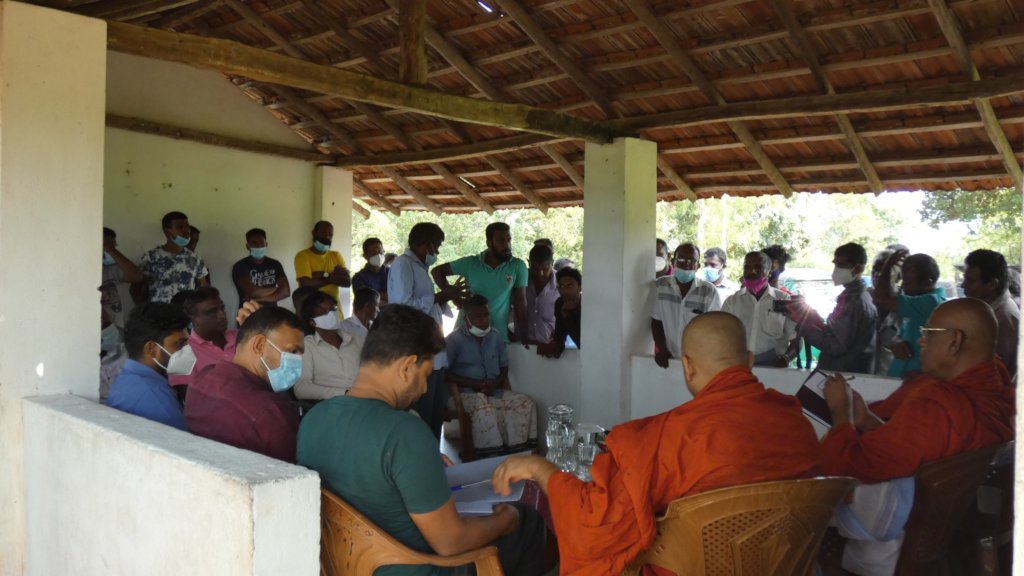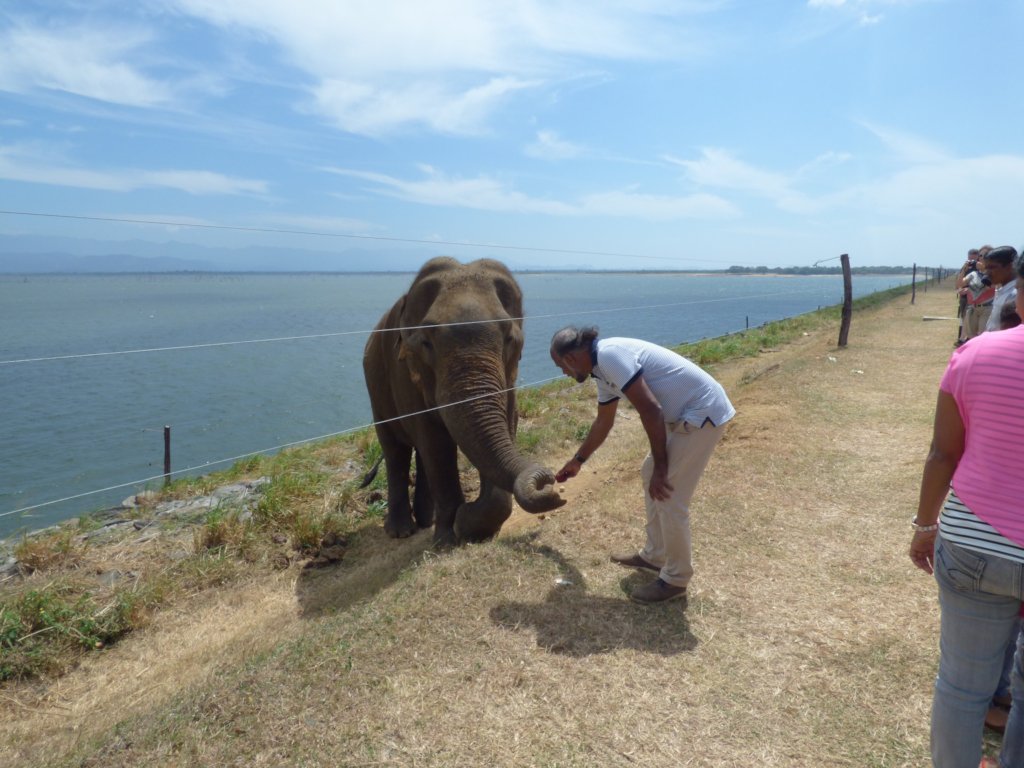By Salik Ansar | External Consultant
Dahaiyagala and deforestation in Sri Lanka
In our previous report we described illegal encroachment and attempted land grabs threatening critical wildlife corridors. The government has also been clearing out forests to various enterprises, domestic and foreign, under the pretense of 'development.' Not wanting to be left behind, local residents also want their share - all of this spells trouble.
The Dahaiyagala corridor is under such threat. It is narrow stretch of habitat that provides access to the larger forest north of Udawalawe National park. This corridor is important for elephants to crossover to gain access to much needed minerals and other food sources. Our field officer, Sameera Weeratunga, was a key figure in bringing awareness to the issue and rallying people together. He managed to get the local temples, certain Wildlife and Forest department authorities, and other environmental conservationists to make an appeal to the President, highlighting the ongoing human- elephant conflict that would only be worsened by these developments. After much persistence, we are heartened that the government has now decided to hold off distributing the land in Dahaiyagala, which we hope will maintain the integrity of the sanctuary.
'ECOCIDE' - A New Generation Awakens
With the government showing less interest in protecting the environment, a group of environment conservations organizations banded together to create a coalition to voice out against the ecocide that is happening across Sri Lanka. The coalition’s first course of action was to organize a protest, in the busy streets of the capital city, Colombo. It's the first time since the end of Sri Lanka's Civil War that there has been such attention on the environment, and the first time ever there has been such a massive mobilization to protect it.
With over a thousand participants, the protest was powered by a new generation of young conservationists and gained the traction it needed to create awareness. There were extensive media coverage and social media coverage that popularized #stopecocide in Sri Lanka.
But we know protests are not enough - when the cameras are off, and everyone goes home, there is work still to be done. We are there to do it.
Saving Rambo
Rambo was for many years a major attraction at Udawalawe National Park. Having pioneered the art of "begging" at the fence, he relished the fruit he received from local and international tourists alike. Our Ethical Elephant Experiences campaign last year highlighted the hazard such feeding creates for people and elephants alike, and unfortunately, we were right. However, the recent travel restrictions, curfews and lockdowns have stopped tourists from visiting the park and the park was mostly shutdown to prevent the COVID 19 spread. Perhaps for this reason, among others, last year Rambo started boldly breaking through the electric fence and raiding nearby plantations and farms. The Department of Wildlife conservation (DWC) therefore initiated plans to capture the 50-year old Rambo and relocate him to Horowupathana Elephant Detention Center.
The Udawalawe Elephant Research Project has been monitoring Rambo for a long time, and our field manager Sameera, believed that relocating Rambo was unjust. He was at risk of being injured or killed if confined. After coordinating meetings among many key people, the DWCsuspended plans for his relocation. It remains a delicate situation and we hope that neither human or elephant is harmed. Sameera describes these events in his own words, on our blog.
Incense sticks
We enlisted 20 farmers who were willing to participate in trials to see if the incense sticks provided by HDDeS Pvt. Ltd were actually keeping elephants from raiding their crops. Though our trials last year were held up by the pandemic, by April we did manage to complete them and are now preparing a report with our findings of whether this is a viable mitigation method for human-elephant conflict. In the the meantime, wildlife authorities have taken already on board the idea with some enthusiasm - we hope their optimism is well-placed.
Links:
Project reports on GlobalGiving are posted directly to globalgiving.org by Project Leaders as they are completed, generally every 3-4 months. To protect the integrity of these documents, GlobalGiving does not alter them; therefore you may find some language or formatting issues.
If you donate to this project or have donated to this project, you can receive an email when this project posts a report. You can also subscribe for reports without donating.



